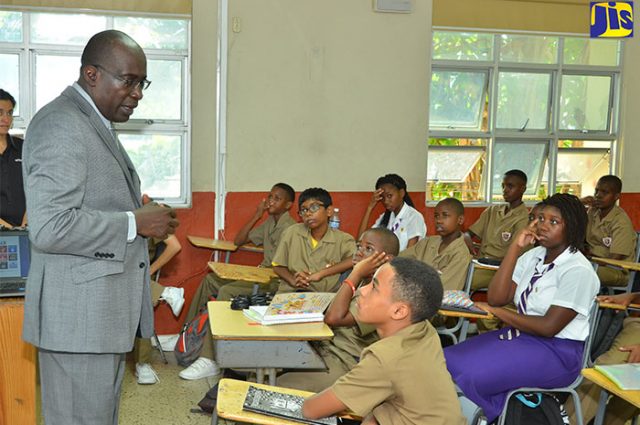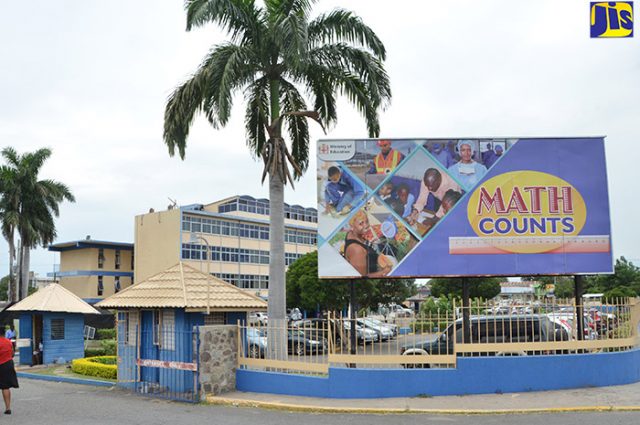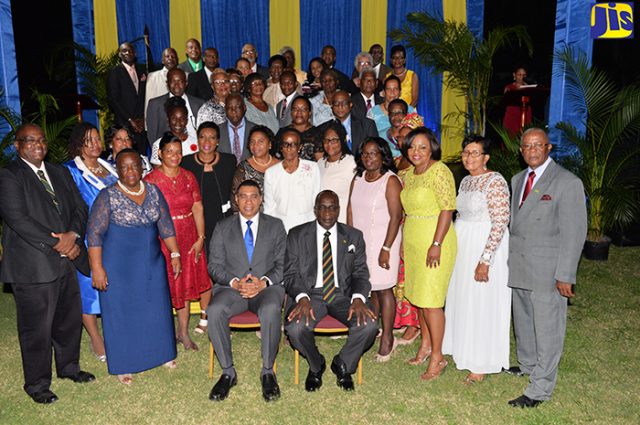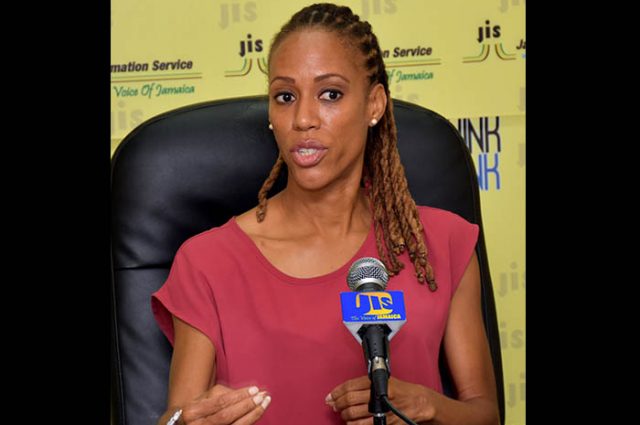JIS: Prime Minister, the Most Hon. Andrew Holness, has expressed gratitude to the nation’s teachers for their extraordinary commitment and dedication to shaping the lives and sharpening the minds of the country’s children.
He was speaking at a ceremony held on Wednesday (June 21) on the lawns of Jamaica House, where 40 educators were awarded the Prime Minister’s Medal of Appreciation for their service to education.
“There is one thing that all our teachers share – an extraordinary devotion to duty and to nurturing the next generation. You have been role models, showing our children the importance of discipline and hard work and the importance of characteristics such as honesty and teamwork,” the Prime Minister said.
He pointed out that teachers have stirred the imagination of students, enabling them to embrace the idea that “no matter the circumstances, an education is a tangible asset that will lead to wider spheres of achievement, accomplishment and service”.
“Your examples of hard work and commitment to lifelong learning will continue to be an inspiration for years to come. I recognise all our teachers with a deep sense of appreciation and gratitude for the dedication with which they continue to play their role in building a confident and vibrant Jamaica,” Prime Minister Holness said.
For his part, Minister of Education, Youth and Information, Senator the Hon. Ruel Reid, said the annual awards ceremony is a wonderful opportunity to recognise excellence and to celebrate the accomplishments of persons who have spent decades in the classroom and education administration.
“The fact is it takes a special calling to be a teacher. By choosing to enter and to stay in education, you have demonstrated your commitment to serve future generations of Jamaicans. As teachers, whether in the classroom on a daily basis or working in administration, you shape your students’ values and help them discover their aspirations in life,” Senator Reid noted.
He added that many of the nation’s teachers never get the public recognition they deserve, “and I am truly happy that at least some of you are being recognised for the first time today”.
The recipients, who have collectively contributed 1,428 years of service to education, were nominated by their peers, community members and elected representatives.
To be considered for the award, recipients must have shown evidence of community involvement, including participation in civic and club activities. Educators involved with uniformed groups and programmes that foster the development of the community and creativity in the service rendered, may also be considered.
Among the awardees is employee at the Education Ministry, Lena Buckle-Scott, who has contributed immensely to the sector in Jamaica and the wider region.
In an interview with JIS News, Mrs. Buckle-Scott said she was “thankful, blessed and extremely elated” to receive the award.
“I didn’t dream that I would be so awarded for my service, but God is good. He is a great God and I thank those who have recommended me. I accept this award on behalf of all my family members, who have served the education fraternity for so long and have not been awarded in this manner,” she noted.
University of Technology (UTech) Professor Colin Gyles, who has served the education sector with distinction for 29 years, was instrumental in establishing the Faculty of Science and Sports at the institution, as well as the schools of Natural and Applied Sciences, Maths and Statistics, and the Caribbean School of Sports Science.
He told JIS News that he feels humbled by the recognition.
“Sometimes we do what we have to do without thinking about any recognition or anything like that. But when it is recognised, it does make a difference and makes one feel good and motivated to serve even more,” Professor Gyles said.
CAPTION: Prime Minister, the Most Hon. Andrew Holness (seated left) and Minister of Education, Youth and Information, Senator the Hon. Ruel Reid (seated right), share a photo opportunity with the recipients of the Prime Minister’s Medal of Appreciation for service to education at the award ceremony held on Wednesday (June 21) on the lawns of Jamaica House. The 40 recipients, who have collectively contributed 1,428 years of service to education, were nominated by their peers, community members and elected representatives.










